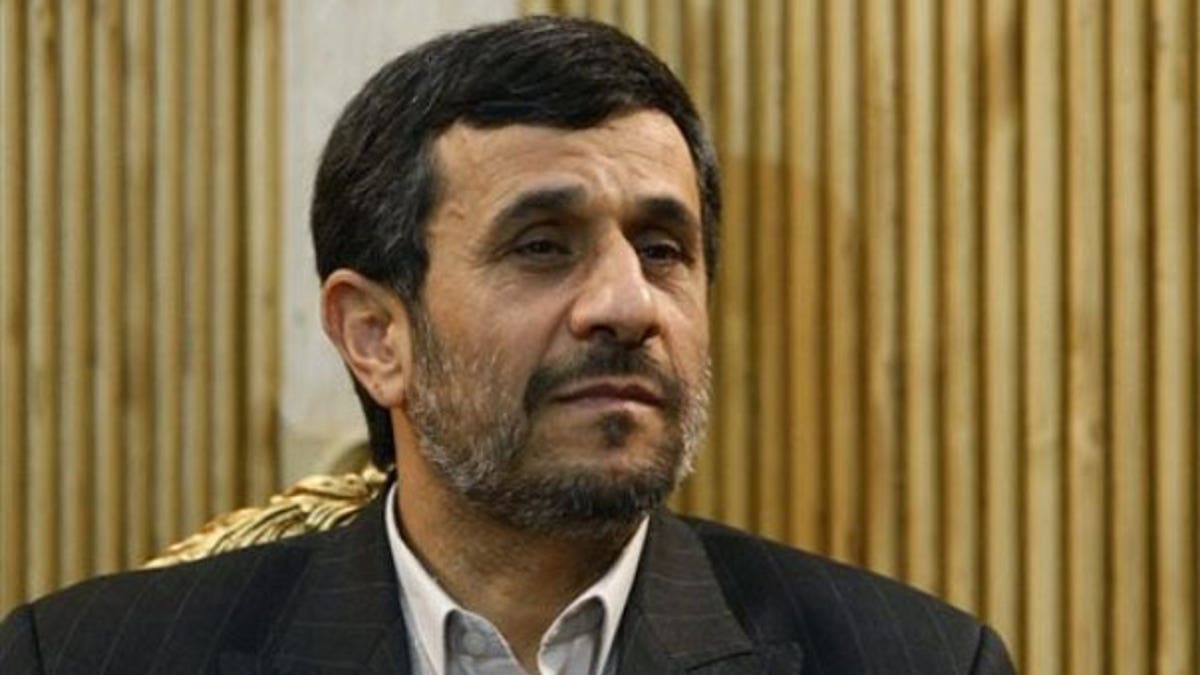
The International Atomic Energy Agency, the U.N.'s nuclear watchdog agency, was quick to dismiss Iran's claim Thursday that it has produced higher-enriched uranium, calling it nothing more than "speechifying." But the record shows a series of intelligence reports spanning almost 20 years that have warned of a nuclear Iran.
President Mahmoud Ahmadinejad announced Thursday that Iran has produced its first batch of enriched uranium -- at a 20 percent purity level -- sparking grave concerns from the U.S. and its allies that the Islamic Republic can easily make the leap to weapons-grade enrichment.
President Obama slapped new sanctions on the country, saying the move shows "a course that would lead to weaponization," while the IAEA called the higher enrichment level "minuscule."
"We would look at those comments with a great deal of skepticism," an official with the agency told Fox News.
But a list of intelligence reports and statements compiled by FoxNews.com show a decades-long fear over Iran's nuclear capability -- with some predicting the Islamic Republic was to become a nuclear state even earlier than 2010.
March 2009: U.S. National Intelligence Director Dennis Blair and Army Lt. Gen. Michael Maples, head of the Defense Intelligence Agency, say Iran could develop nuclear arms by 2010. Blair and Maples testify before the Senate Armed Services Committee that Iran "does not have the highly enriched uranium," but is capable of producing it sometime between 2010 and 2015.
September 2008: Former CIA director Michael Hayden says Iran has the scientific and industrial capacity to produce nuclear weapons "eventually." "The question is not of capability, but intent," Hayden says.
December 2007: The National Intelligence Estimate, a U.S. intelligence estimate produced by the CIA and other agencies, finds that Iran halted its covert nuclear weapons program in 2003 but still has the ability to produce a nuclear bomb between 2010 and 2015.
April 2005: Lowell Jacoby, head of the Defense Intelligence Agency, tells the Senate Armed Services Committee that Iran will be capable of producing nuclear weapons in 2010, citing newly released intelligence estimates.
February 2002: U.S. officials tell Congress that Iran will be able to produce a nuclear weapon by the end of the decade.
January 2000: Senior Clinton administration officials tell the New York Times that the CIA believes Iran may now be capable of creating a nuclear weapon.
September 1999: The CIA says Iran may be capable in the next few years of testing a ballistic missile with a nuclear-weapon-sized payload capable of hitting the U.S., The Washington Post reports.
September 1994: Former CIA director R. James Woolsey tells a Washington think tank that Iran will be able to build its own nuclear weapons in eight to 10 years. "We believe that Iran is eight to 10 years away from building such weapons," Woolsey said.
November 1992: A draft CIA report says Iran's nuclear arms program is progressing and the country could develop a nuclear weapon by the year 2000, The New York Times reports.
Speaking about Iran's threat that its will shouldn't be tested, White House Press Secretary Robert Gibbs said Thursday that if Tehran had been serious about the peaceful use of its nuclear material, then it should have taken more seriously the offer to exchange low-grade and high-grade uranium for use in its research reactor.
"Not taking the IAEA up and its partners up on a very common-sense offer leads, quite frankly, the world to believe that Iran has other ideas," Gibbs said. "That's why -- and I would say this: The reactions -- the actions of Iran have led the world to be more unified than at virtually any other point in the past many years."
But Gibbs also said he's not convinced about Iran's claims.
"Quite frankly, what -- what Ahmadinejad says -- he says many things and many of them turn out to be untrue," he said. "We do not believe they have the capability to enrich to the degree to which they now say they are enriching."
Fox News' Greg Palkot and the Associated Press contributed to this report.




